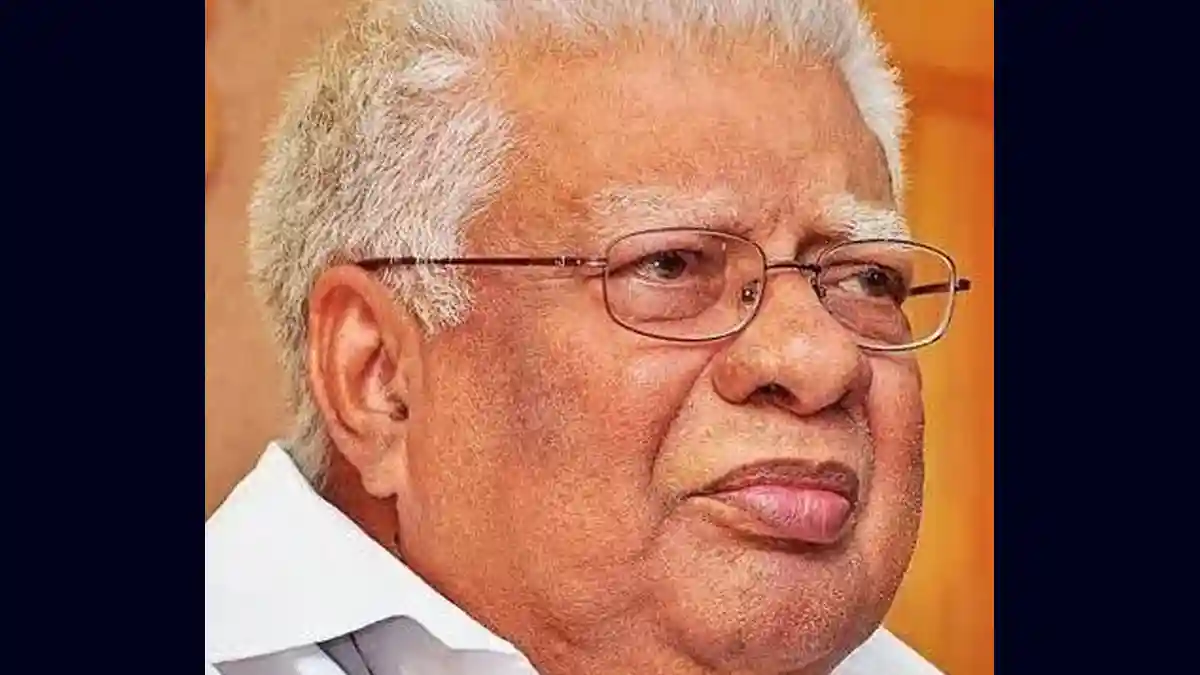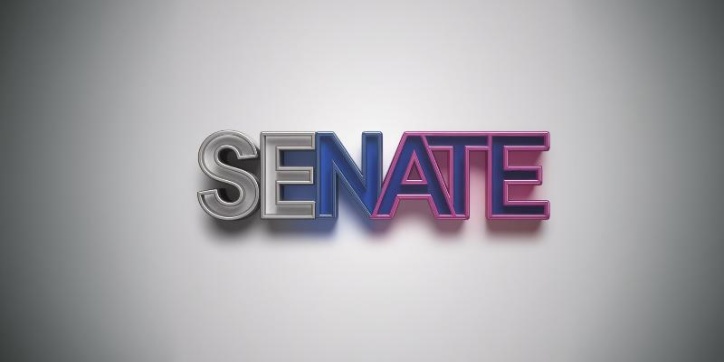By Lawson Gwarnusi,Rapheal
Copyright thesun

By Lawson Gwarnusi
Kaduna State’s Commissioner for Education, Prof. Abubakar Sani Sambo, recently lauded the Federal Government’s National Education Research Database (NERD) digitization program. Speaking on the initiative’s potential to revolutionize academic integrity, Prof. Sambo declared, “We will be supporting this. Kaduna State and in particular Governor Uba Sani are irrevocably committed to the objective of an improved education sector as an enabler of growth.”
This statement underscores a pivotal truth in Nigeria’s governance: the profound impact of seamless federal-state collaboration on transformative policies which should be embraced by all. NERD, a flagship federal effort to digitize theses, dissertations, and research outputs, aims to eradicate academic fraud, enhance knowledge accessibility, and foster innovation. Yet, its success hinges not on isolated federal action but on robust partnerships with states like Kaduna, where local commitment can amplify national goals. And it is heartwarming that Kaduna has leapt to the forefront in this matter. Since assuming office on May 29, 2023, Governor Sani has exemplified this collaborative ethos, turning Kaduna into a beacon of inclusive development. From security restoration to agricultural revitalization, his administration’s collaborative efforts with the Federal Government agencies have yielded positive and tangible benefits, touching the lives of millions. In this instant case of NERD, the administration of Sani, once again, has shown that there is a lot more to gain by sub-national when they engage in key collaborations with the federal government. These partnerships illuminate a path to sustainable prosperity, proving that unity across tiers of government is not just a strategic move but an essential drive for growth and development.
The fact remains that federal-state collaboration is the bedrock of effective policymaking in federations like Nigeria, where power is constitutionally divided yet challenges are inherently shared. At its core, this synergy pools resources, expertise, and implementation capacity, ensuring policies transcend bureaucratic silos and deliver on the ground. For initiatives like NERD, which demand nationwide data infrastructure, uniform standards, and local buy-in, disjointed efforts risk fragmentation that certainly may leave pockets of the country behind in the digital education race.
For long, as aptly attested to by Prof. Sambo, Nigeria’s education sector has grappled with outdated systems, rampant plagiarism, and limited access to scholarly resources, thus stifling research and innovation. The NERD program addresses all this by creating a centralized digital repository for academic works, making plagiarism checks quick and easy; open-access sharing, and policy-informed reforms.
NERD, a policy that is federally driven, leverages national funding and technical know-how from bodies like the National Universities Commission (NUC) and the Tertiary Education Trust Fund (TETFund). However, states hold the frontline: they manage schools, train educators, and enforce compliance. Without state-level advocacy as Prof. Sambo has pledged, NERD could falter in adoption, much like past federal tech rollouts hampered by infrastructural disparities.
The benefits of the federal – state collaboration extend beyond efficiency. Collaboration fosters accountability with federal oversight complementing state innovation. It mitigates risks of policy capture by local interests and scales successes. A pilot in Kaduna today could inform national tweaks, creating a virtuous cycle.
Economically, such partnerships unlock funding such as federal grants, international loans channeled through states and politically, they build trust, reducing intergovernmental friction.
In education specifically, joint efforts align with Sustainable Development Goal 4 (quality education), positioning Nigeria as an African knowledge hub.
Governor Sani’s approach embodies this philosophy. His “Sustain Manifesto,” a blueprint for open governance, emphasizes harnessing federal resources for local priorities, from water dams to digital literacy.
This is not mere rhetoric; it is a deliberate strategy that aims at channeling all available energies and resources into development. As Nigeria navigates economic headwinds, including inflation (though lately on the decrease) and insecurity, these alliances prove indispensable as they turn all potential challenges into allies for the common good.
NERD, launched as a cornerstone of President Bola Tinubu’s education renewal agenda, represents a bold digitization thrust to modernize Nigeria’s academic ecosystem. By mandating the upload of all theses and dissertations to a secure national platform, it combats fraud which has been estimated to cost the sector billions in lost credibility. Students in remote Kaduna villages could soon access PhD-level research via mobile apps, while universities gain tools for authentic assessments. Early phases target tertiary institutions, with rollout to secondary schools by 2026, backed by N10 billion in federal seed funding.
Significantly, Kaduna’s embrace of NERD is no accident. It is rooted in Governor Sani’s vision of education as “an enabler of growth.” Prof. Sambo’s pledge of the state’s decision signals concrete actions: state-funded training for 5,000 educators on digital tools, integration with Kaduna’s e-learning hubs, and pilot digitization of 10,000 local theses by mid-2026. This collaboration extends to infrastructure which will include federal broadband expansions paired with state solar-powered school labs, thus ensuring equitable access.
For Kaduna, with its 2.5 million out-of-school children, NERD is not abstract. It is a lifeline to equip youths with the necessary skill for the Fourth Industrial Revolution – from AI ethics to sustainable farming tech. Interestingly, Governor Sani’s tenure has been defined by strategic federal partnerships, yielding over a dozen major initiatives since 2023. These span sectors, demonstrating a holistic approach that prioritizes people over politics.
In security, the Kaduna Peace Model stands out as an example touted as the best of its kind – a non-kinetic framework co-developed with the Office of the National Security Adviser (ONSA) and federal security agencies which was launched in late 2023. It integrates community dialogues, federal intelligence, and state-led reconciliation, restoring calm to hotspots like Birnin Gwari, Giwa, and Kajuru. Notorious bandit leaders, including Boderi and Sani Yellow, have been neutralized through joint operations, while the Peace Dialogue Group, backed by federal troops facilitates repentant insurgents’ reintegration. By June 2025, it has plummeted by about 70%, per state reports, allowing markets to reopen and IDPs to return home.
Beyond NERD, Kaduna secured a $62.8 million Kuwait Fund loan in August 2025, facilitated by the Federal Ministry of Finance, to enroll 100,000 out-of-school children. This builds on federal TETFund grants for renovating 500 classrooms and deploying 2,000 teachers. Governor Sani’s administration has also partnered with the Universal Basic Education Commission (UBEC) to launch free meal programs in 1,200 schools, boosting attendance by 25% in rural areas.
Agriculture has seen transformative federal-state alchemy via the Special Agri-Industrial Processing Zone (SAPZ). With Vice President Kashim Shettima doing the ground breaking in April 2025, the $1 billion AfDB-Federal Government-Kaduna venture at Daki-Takwas aims to process 500,000 tons of crops annually, creating 50,000 jobs. It includes irrigation from the federal-backed Greater Kaduna Water Supply Project, thus enhancing yields for 200,000 smallholder farmers. Complementary efforts, like federal fertilizer subsidies distributed through state cooperatives, have increased maize output by 40% in the 2024-2025 farming season.
In healthcare, similar partnerships have upgraded 250 primary health centers to Level II status—the highest in Nigeria—via collaborations with the National Primary Health Care Development Agency (NPHCDA). Federal vaccine drives, integrated with state mobile clinics, reduced maternal mortality by 30% in Southern Kaduna.
Meanwhile, the solid minerals sector’s revival, aligned with federal mining reforms, has licensed 50 new artisanal sites, generating N5billion in revenue and employing 10,000 youth. In infrastructure, the federal Rural Electrification Agency (REA) has mini-gridded 100 communities under Kaduna’s “Light Up Kaduna” initiative, powering schools and farms. Flood mitigation, co-funded by the Federal Ministry of Environment, has built 20 dams, irrigating 50,000 hectares. Skills programs, tied to federal NYSC expansions, have trained 20,000 youths in vocational trades, curbing unemployment and banditry.
All these collaborations and synergies are interconnected in one form or another with ripple positive effects. Kaduna’s NERD commitment heralds a new era of governance where federal vision meets state execution. As Prof. Sambo’s words resonate, Kaduna’s irrevocable pledge signals nationwide potential. By sustaining these bonds, Nigeria can surmount its divides, and ensuring that policies like NERD propel every citizen toward opportunity.
In collaboration such as this is found the Nigeria promise: a united federation, where policies like NERD illuminate paths from fraud to flourishing, insecurity to stability, poverty to prosperity. For Kaduna people, it is not abstract policy; it is the dawn of enduring opportunity.
•Gwarnusi, a trained geologist and public affairs analyst, writes from Kaduna, Kaduna State



